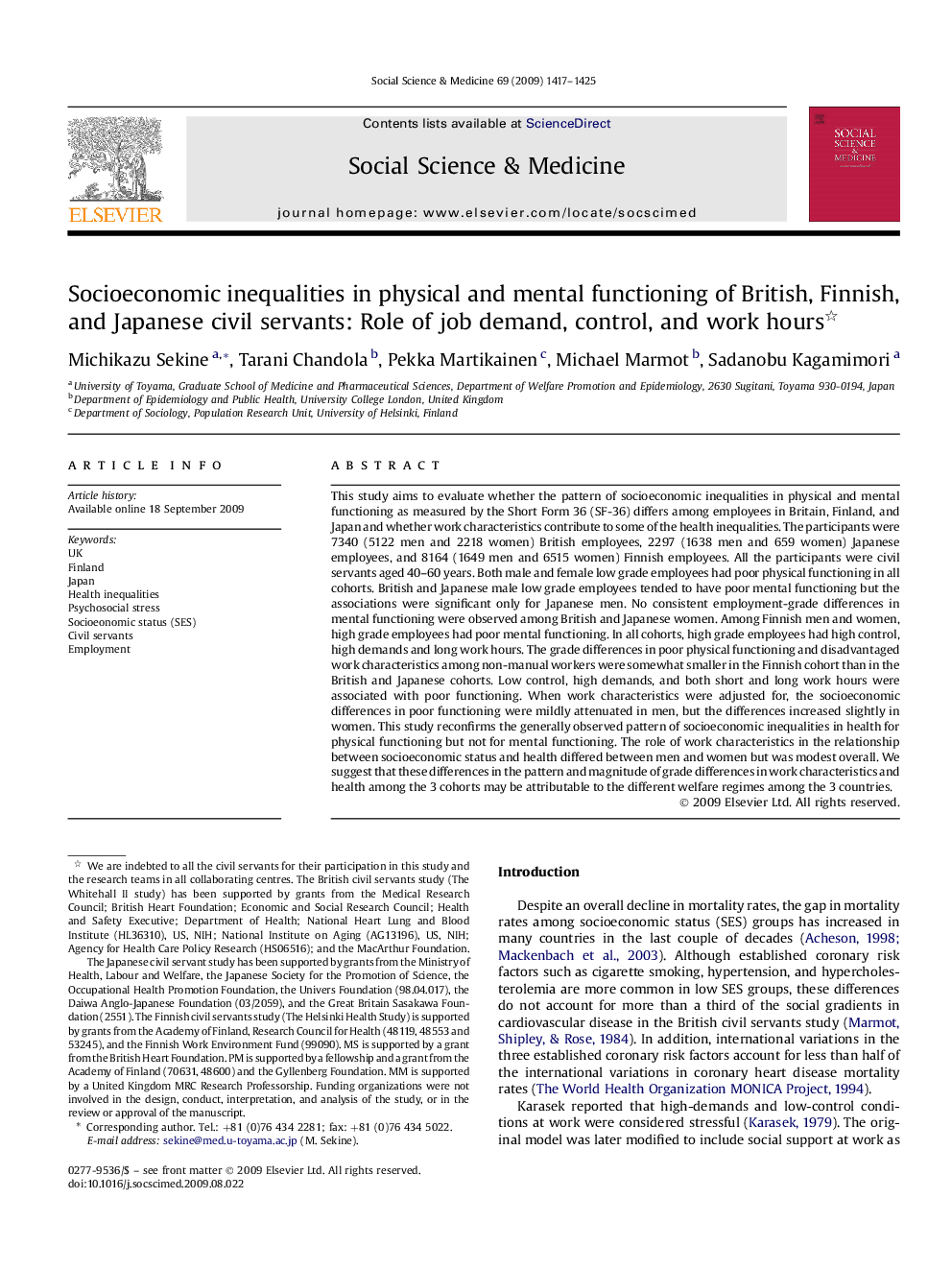| کد مقاله | کد نشریه | سال انتشار | مقاله انگلیسی | نسخه تمام متن |
|---|---|---|---|---|
| 953203 | 927572 | 2009 | 9 صفحه PDF | دانلود رایگان |

This study aims to evaluate whether the pattern of socioeconomic inequalities in physical and mental functioning as measured by the Short Form 36 (SF-36) differs among employees in Britain, Finland, and Japan and whether work characteristics contribute to some of the health inequalities. The participants were 7340 (5122 men and 2218 women) British employees, 2297 (1638 men and 659 women) Japanese employees, and 8164 (1649 men and 6515 women) Finnish employees. All the participants were civil servants aged 40–60 years. Both male and female low grade employees had poor physical functioning in all cohorts. British and Japanese male low grade employees tended to have poor mental functioning but the associations were significant only for Japanese men. No consistent employment-grade differences in mental functioning were observed among British and Japanese women. Among Finnish men and women, high grade employees had poor mental functioning. In all cohorts, high grade employees had high control, high demands and long work hours. The grade differences in poor physical functioning and disadvantaged work characteristics among non-manual workers were somewhat smaller in the Finnish cohort than in the British and Japanese cohorts. Low control, high demands, and both short and long work hours were associated with poor functioning. When work characteristics were adjusted for, the socioeconomic differences in poor functioning were mildly attenuated in men, but the differences increased slightly in women. This study reconfirms the generally observed pattern of socioeconomic inequalities in health for physical functioning but not for mental functioning. The role of work characteristics in the relationship between socioeconomic status and health differed between men and women but was modest overall. We suggest that these differences in the pattern and magnitude of grade differences in work characteristics and health among the 3 cohorts may be attributable to the different welfare regimes among the 3 countries.
Journal: Social Science & Medicine - Volume 69, Issue 10, November 2009, Pages 1417–1425